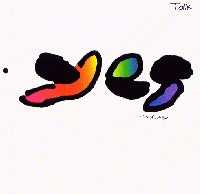

Formed in England in 1968, Yes are the most successful and enduring of the '70's progressive rock bands that mixed classical music with rock. When prog-rock went out of fashion in the '80's, the band managed to retain most of its popularity by making subtle but effective changes in their sound, not to mention their membership. The strangest twist in the band's career came in the late '80's, when two different versions of Yes briefly existed. After these two factions settled their differences, they merged to become an eight-member band for one album. Yes continues to record and perform to this day in one lineup or another.

The 1994 album Talk went out of print when the Victory label went out of business. It was reissued in March 2002 on the Spitfire label, but that edition also became unavailable. With the eight-member Union album behind them, the band reverted back to the same five-member lineup -- Jon Anderson, Trevor Rabin, Chris Squire, Tony Kaye, and Alan White -- that recorded the '80's albums 90125 and Big Generator. But Talk has neither the pop appeal of the former or the nervy excitement of the latter. The sparsely arranged songs often begin promisingly but go nowhere, and certainly have no business running as long as they do (although they aren't all that long by Yes standards). "Walls" and "Where Will You Be" are the only tracks that don't entirely wear out their welcome. The most valuable player here is guitarist-keyboardist-producer Rabin, whose sharp playing and crisp production keep the album from being a total bore. But he is unable to lift the uninspired Talk above mediocrity.
Note: In May of 2024, Talk was given a massive 30th-anniversary Deluxe reissue treatment by the Spirit of Unicorn Music label, with the issuance of a 4-CD Super Deluxe Edition, a 2-LP white vinyl edition, and a single-CD reissue. What was on that mammoth 4-CD edition? The second disc contained alternate edits of five of the songs, including three alternate versions of "The Calling". The third and fourth discs featured a live concert recording from the lineup, recorded in New York on June 19, 1994.
Track Listing:
1. The Calling
2. I Am Waiting
3. Real Love
4. State Of Play
5. Walls
6. Where Will You Be
7. Endless Dream
- a. silent spring (instrumental)
- b. Talk
- c. endless dream
Home